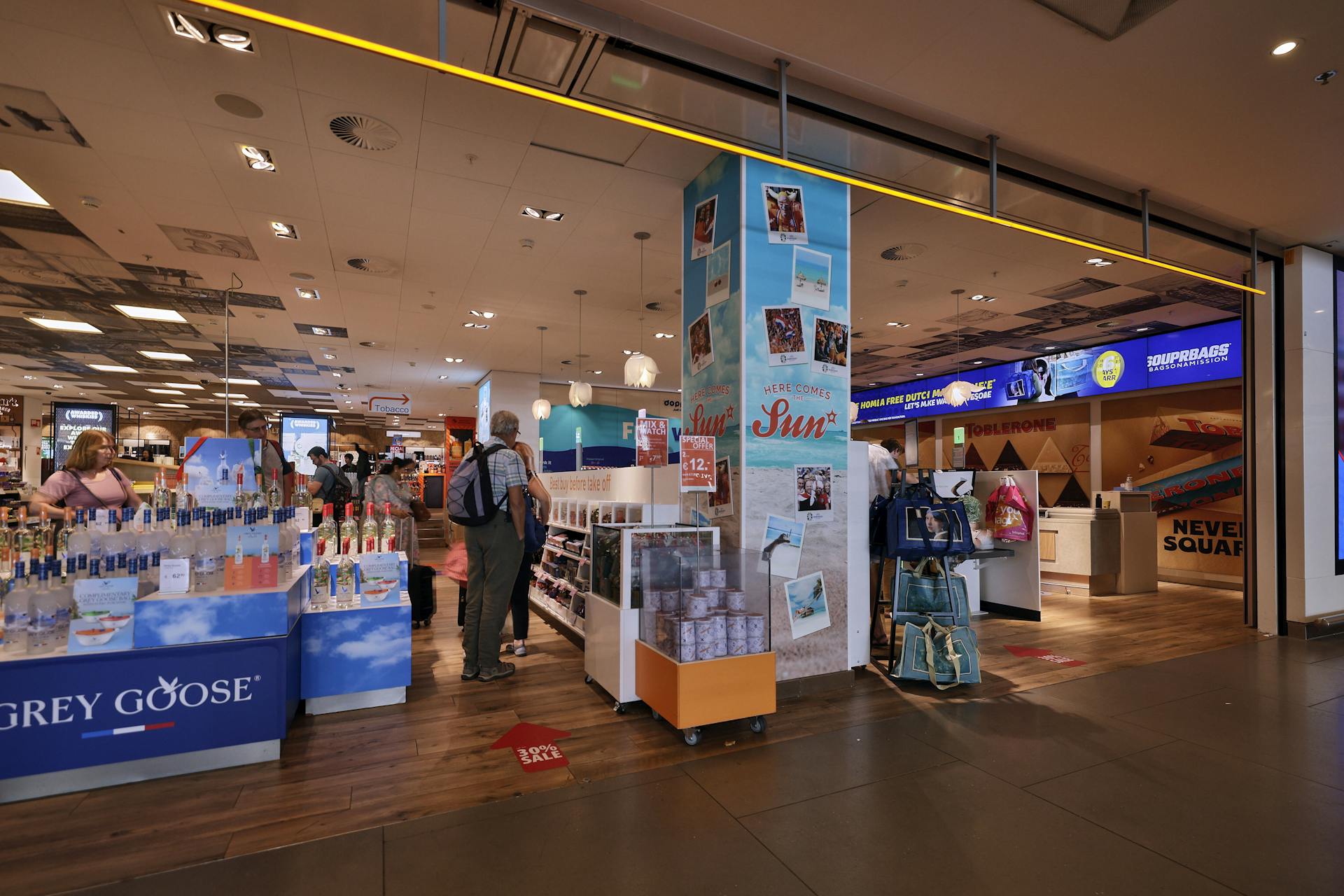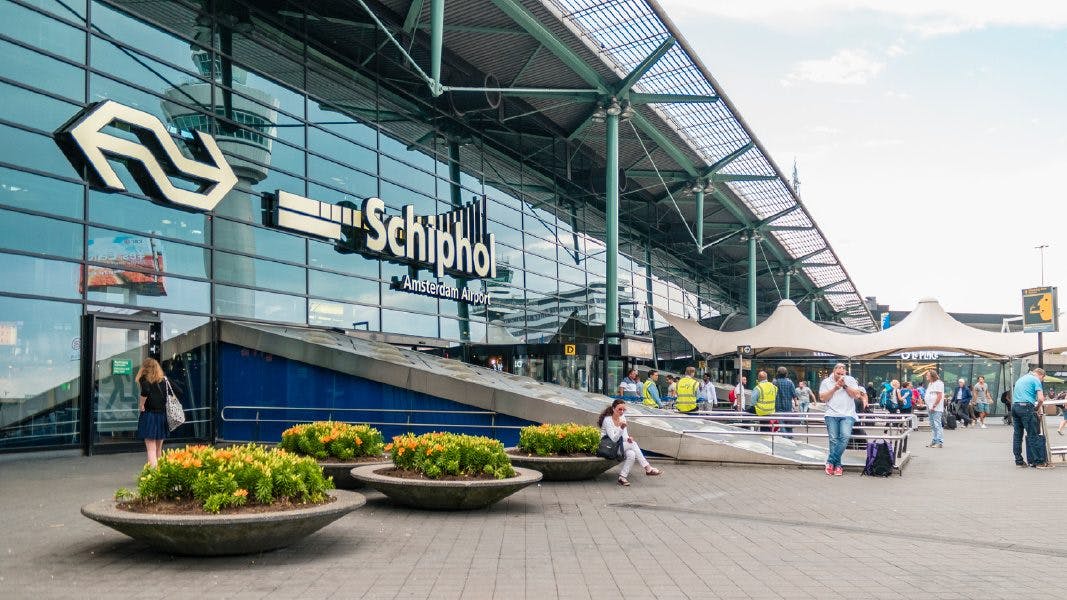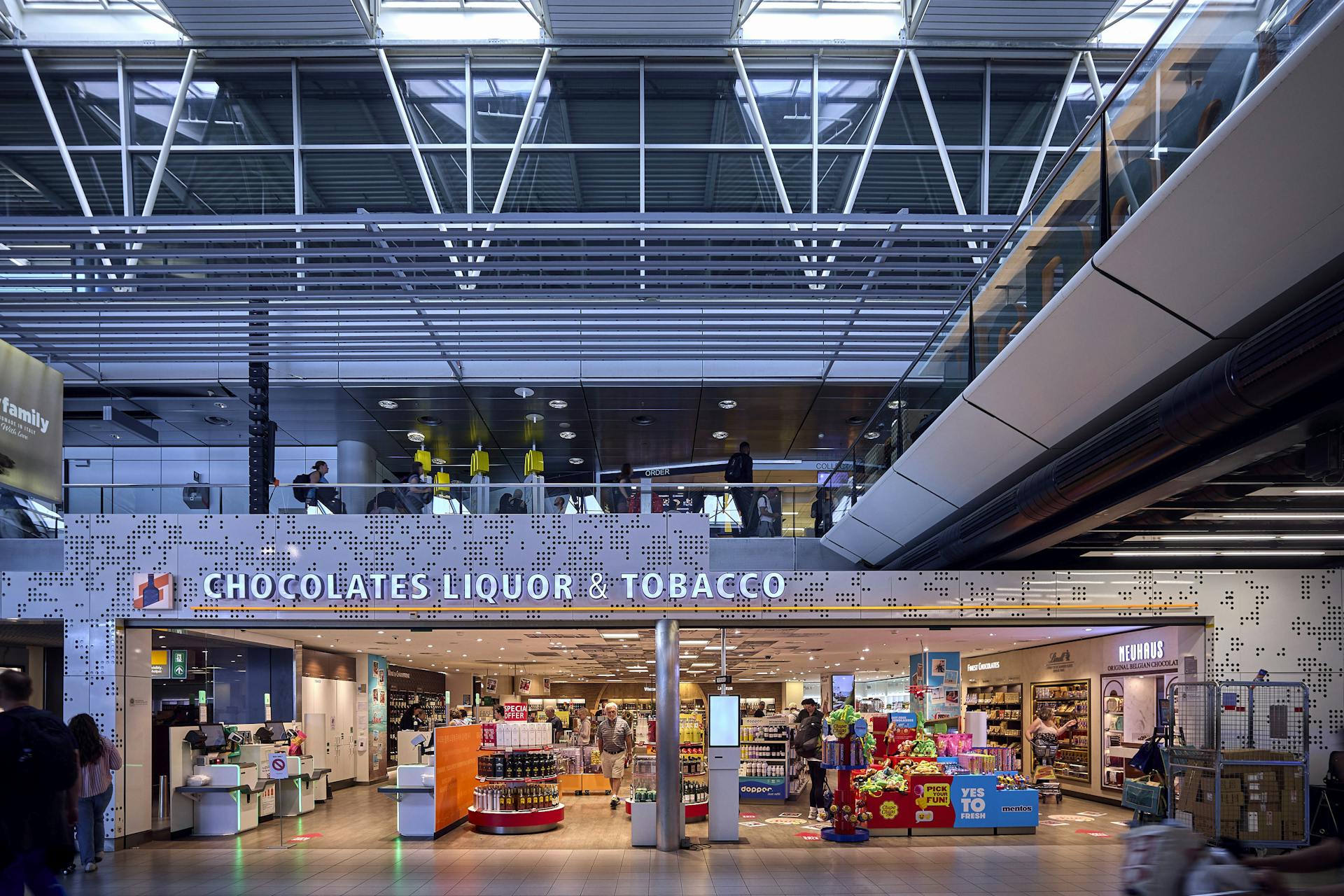Smart Workforce Scheduling at Schiphol Airport Retail
Read time: 7-8 minutesFrom Fixed Rosters to Smart Workforce Planning
Schiphol Airport Retail (SAR), a leading player in the travel retail sector, has undergone a remarkable transformation in collaboration with ORTEC in the field of workforce management. In just twelve months, absenteeism has dropped from 17% to 8% – a reduction that not only saves costs but also significantly improves employee satisfaction and customer experience. Previously, the organization relied on a manual system with fixed schedules, which was rigid and error-prone. With the implementation of ORTEC's advanced workforce scheduling solution and a user-friendly mobile app – fully in the branding of Schiphol Airport Retail – the scheduling process has become more efficient and accessible. Employees can now easily request time off and swap shifts via the app, granting them greater autonomy, and enabling a more flexible work culture. Notably, the implementation speed was impressive: within three months, the new system was fully operational. "Employees gain more control over their schedules, and we can respond to changes more quickly," says Managing Director Simon Asmus.
Interview with Simon Asmus, Managing Director at Schiphol Airport Retail
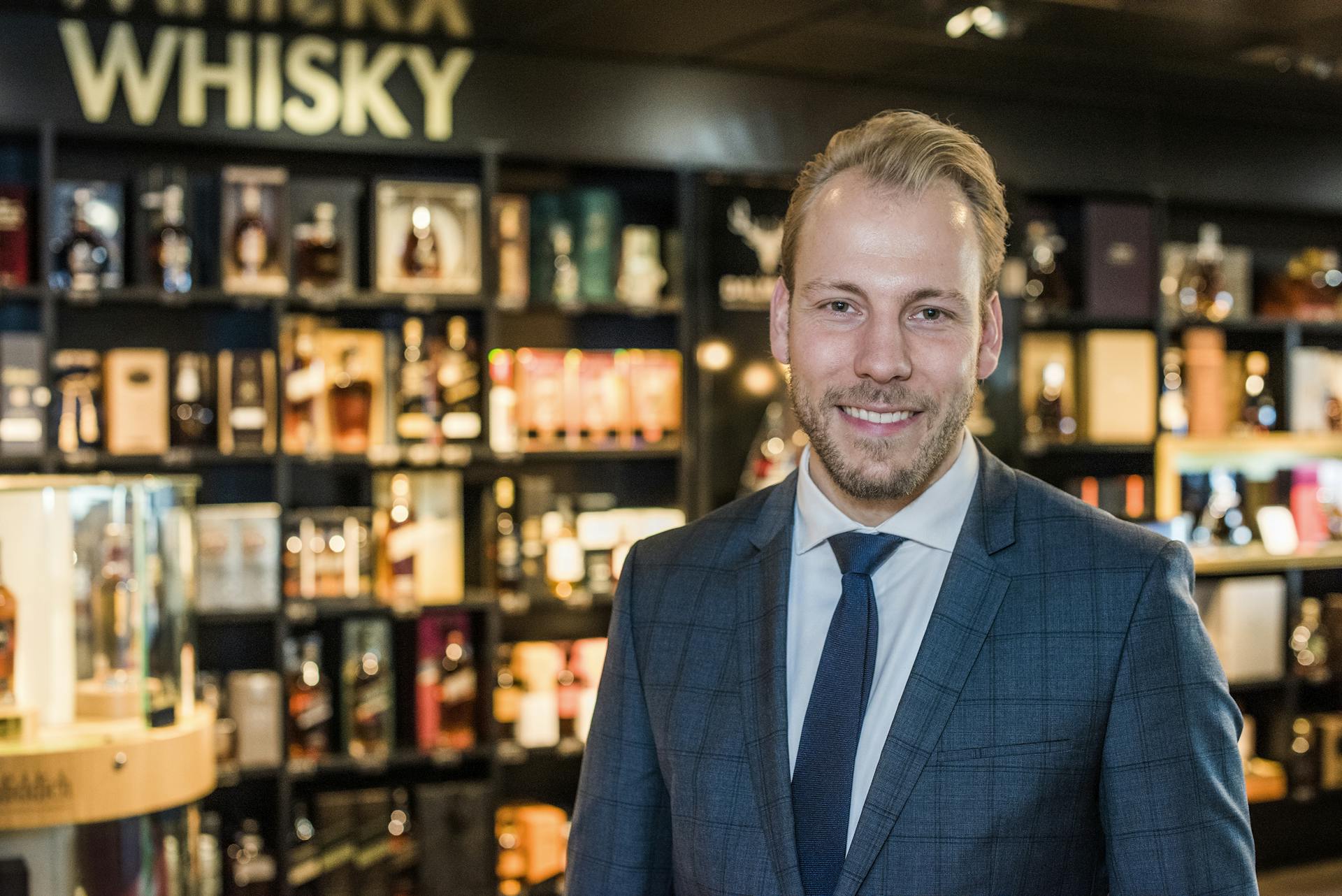
Travel Retail: A Unique Market
Travel retail, in which Schiphol Airport Retail operates, is a unique niche within retail. "Travelers aren't typical shoppers," explains Asmus. "They're en route to a business trip or vacation, often rushed or stressed. Fifty percent of passengers fly only once a year and aren't in a shopping mindset. Our job is to convince them in a matter of seconds." This requires precision in timing, a sharp focus on customer experience, and effective communication. "You must quickly identify their needs, provide sound advice, and ensure they depart happily. It's all about the travel experience, not just sales."
Due to the dynamic nature of an airport environment, Schiphol Airport Retail relies heavily on point-of-sale marketing. "Eighty percent of our marketing targets travelers already at Schiphol," says Asmus. "After clearing security, as they start to relax, we need to be ready with the right atmosphere and offers." This unique context makes efficient workforce scheduling essential: employees are the key to success in this fast-paced, customer-focused environment.
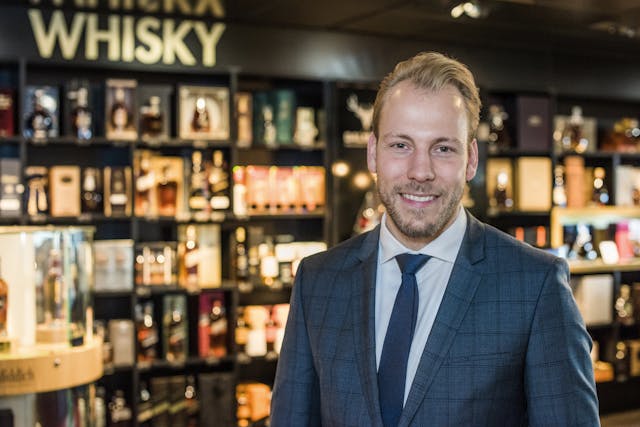
Simon Asmus, Managing Director at Schiphol Airport Retail
"Absenteeism dropped from 17% to 8%. That says it all."
Unique Dynamics
Schiphol Airport Retail is a joint venture between Royal Schiphol Group and Gebr. Heinemann. "We combine the customer and infrastructure expertise of the airport with Heinemann's global retail knowledge," says Asmus. Heinemann operates in more than 150 countries, focusing on duty-free and travel retail. This collaboration is rare in Europe and brings complex dynamics. "The airport drives revenue through a sales-dependent rent, while we as retailers focus on outcomes. Personnel is our largest expense but also the most critical factor in customer experience."
An outstanding sales experience not only boosts revenue but also enhances Schiphol's image as an airport. "The employee in the store often decides whether a traveler becomes a customer," says Asmus. "That's why efficient shift planning is crucial – both economically and strategically."
"With smart planning, we save costs and improve work happiness."
Halved Absenteeism and More Efficient Scheduling at SAR
Switching to a new workforce scheduling system provided tangible benefits for SAR:
- Absenteeism halved: from 17% to 8%
- More efficient scheduling: from four to two planners
- Enhanced employee satisfaction: thanks to more autonomy
"Employees now have more control over their schedule through the app," says Simon Asmus. "They can indicate preferences, swap shifts, and request leave – this translates directly into motivation and work happiness." This demonstrates how smart planning not only saves costs but also improves the work environment at SAR.
From Fixed Rosters to Flexible Planning
Before the collaboration with ORTEC, Schiphol Airport Retail used a manual, six-week roster. "Employees knew years in advance when they worked, which was convenient for them," explains Asmus. "But for us, it was unworkable. The system was outdated, dependent on one employee. When they retired, it collapsed." The airport's dynamic nature – with peaks determined by flight schedules – made this system impractical. "If flights change, everything shifts. Three flights to Asia replaced by flights to Africa? We need to adjust immediately."
"Everyone wins: the airport, us, and the staff."
Switching to ORTEC's optimizer brought flexibility. "Employees gain more control over their schedules, and we can respond to changes more quickly," says Asmus. "Everyone wins: the airport, us, and the staff."
The limitations of the old system led to the search for a modern solution. "We considered simple tools and the schedule management function in AFAS, our HRM tool," says Asmus. "But we wanted to do better, not just the same." The new system needed to optimize, be flexible, and empower staff. ORTEC was ideal. "The smart optimizer and self-service capabilities for employees made the difference," notes Asmus.
"Within three months, the new system was operational."
Faster Scheduling and Improved Occupancy at SAR
The introduction of advanced workforce management software led to tangible improvements:
- Shorter scheduling time: process reduced from 3 days to 1
- Fewer overtime hours: 20% reduction through better alignment with flight schedules
- Improved occupancy rate: from 85% to 92%
- Greater engagement: 75% of employees actively use the app for self-management
"In the past, each change in flight schedules caused headaches," says Simon Asmus. "Now we adjust rapidly, and employees appreciate the freedom to shape their schedules. It's a win-win: we save time and costs, and they experience more control." This highlights how smart planning makes SAR more efficient and attractive as an employer.
Swift and Decisive
Implementation proceeded rapidly. "We chose to switch all at once," says Asmus. "Change comes with resistance, especially from staff used to fixed schedules. But if you use two systems side by side for too long, the old remains appealing. So we ripped off the band-aid." Within three months, ORTEC was operational. "Technical aspects went smoothly, but we should have involved staff earlier in the communication," he reflects. "Nevertheless, they adapted quickly, thanks to the intuitive app."
With the app, employees can view their schedules, swap shifts, and request leave – anytime, anywhere. "This convenience accelerates acceptance," says Asmus.
"Employees now have control over their schedules."
Efficiency and Employee Satisfaction
The new system brought immediate benefits. "Manual scheduling is error-prone," explains Asmus. "A missed preference can cause frustration. Now, the system manages everything – preferences, rules, peaks – and offers planners options without hassle." This removes emotion from the process. "You're dealing with the system, not colleagues. This makes decisions easier to accept."
The organization also became more agile. "In the past, we relied on one planner. Now anyone can create schedules, and if someone is absent, the system generates a solution," says Asmus. "It's 80% accurate – something that used to take years of experience."
Employee satisfaction increased thanks to flexibility. "Swapping shifts now occurs without a planner. That boosts work happiness," notes Asmus.
Agility and Happy Staff at SAR
An advanced planning and scheduling system made SAR operationally efficient and people-focused:
- Faster response time: schedule changes now processed within 2 hours (previously 1-2 days)
- Improved customer satisfaction: 15% increase due to better staffing during peak times
- More autonomy: 85% of employees feel more involved in their schedules
- Enhanced work-life balance: flexible schedules lead to 30% fewer complaints about work pressure
"With smart planning, we can now quickly react to changes like shifted flights or unexpected busy periods," says Simon Asmus. "At the same time, we provide employees the tools to better align their work and personal lives. This translates to happier teams and better service for our customers."
From Roster App to Communication Platform
Following implementation, Schiphol Airport Retail integrated internal communication into the app via ORTEC's ESS Plus module. "Previously, we used an external channel, but one app works better," Asmus notes. "Employees are already checking their schedules daily, so they immediately see the news. Reading rates increased from 30-40% to 50-55%." This strengthens connectedness, especially in a dispersed team. "We're considering a chat feature to replace WhatsApp – more efficient and secure," he adds.
Results: Halved Absenteeism
The impact is impressive. "Continuity has improved; we're less dependent on individuals," says Asmus. "But the best part is employee satisfaction." In a recent survey, Schiphol Airport Retail scored higher in communication and scheduling. "In the past, people called in sick if their schedule didn't fit. Now they can easily swap via the app."
Absenteeism dropped from 17% to 8%. "This shows: give people autonomy, and they feel better," says Asmus. "It's about work happiness and sustainability, not just costs."
Future Vision
The collaboration with ORTEC continues. Schiphol Airport Retail is testing a new optimizer that weighs preferences, such as day versus time. "We want to make employees more aware of their choices," says Asmus. Plans also include more integration – such as training in the app – and AI for support tasks like answering HR questions. "But the human factor on the shop floor remains our strength," he emphasizes.
"ORTEC provided not just technology but also engagement. That makes this collaboration so successful," Asmus concludes. What began as a scheduling system grew into a vision for flexible, people-centric work – with a halved absenteeism as proof.
Career of Simon Asmus
Since 2017, Simon Asmus has been at the helm of Schiphol Airport Retail. His international career began after his Business Administration studies at Gebr. Heinemann, a global leader in travel retail. "I started with an intensive traineeship," he recounts. "The idea was to rapidly move through different roles, aiming for a leadership position at an airport." That opportunity came sooner than expected. Within a year, he became project manager in Egypt, where he set up a joint venture and opened the first store. "I managed everything: from recruiting and training staff to IT, logistics, and HR. It was a tremendous learning curve."
The store flourished, but shortly after closed due to an attack at the airport. Back in Germany, Asmus took on another project manager role, including retrieving goods from Egypt. Subsequently, he moved to Oslo as Operations Manager for one of Heinemann's largest retail outlets, including duty-free stores and the then-largest arrival store globally. Just as he was about to settle in Norway with his family, Amsterdam came into view. "It was a tough choice: Oslo or Amsterdam? My wife and I are both German, so living closer to family was appealing. And the chance to be ultimately responsible at one of Europe's largest airports was unique. We moved, and never left. The Netherlands now feels like home."

Want to learn more about optimizing your workforce planning processes?
Feel free to contact one of our experts to discover the power of ORTEC's advanced scheduling solutions.
